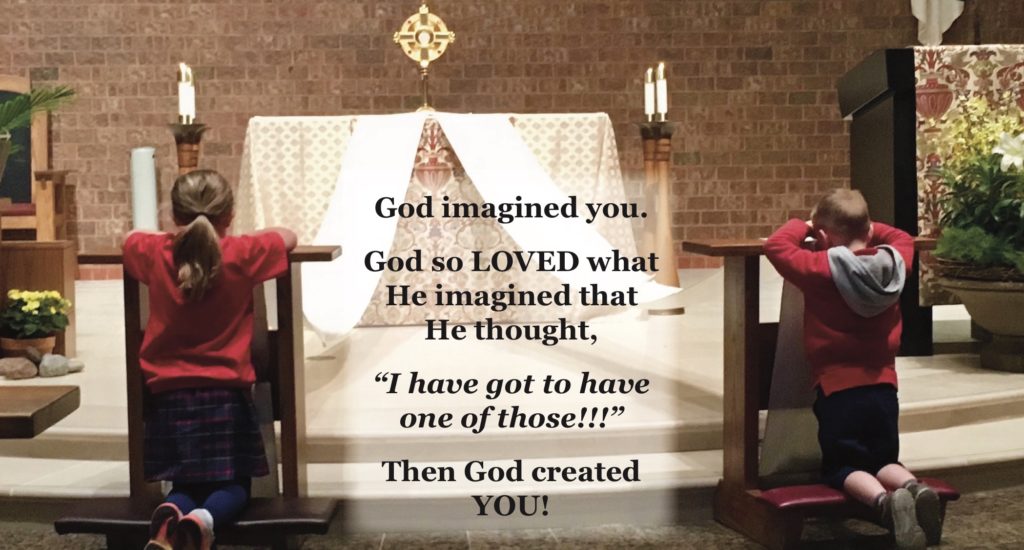
Deacons at my parish were asked to visit classrooms and discuss faith. When I found out I’d be paired with kindergarten, I was intimidated. When you discuss things with kindergarten students, they don’t think about what they are “supposed” to say or worry about what their friends will think. They just say what they think.
In one of our first gatherings, I asked, “Let’s suppose you’re going to draw a picture. At what point do you know what it’s going to be a picture of? After you finish do you just look at it and find out what it’s a picture of?”
“No,” they strongly responded. They decide what it’s going to be a picture of before they even start. They told me that before they can create anything, they imagine it.
“So when you’re done, your teacher or your parent might say, ‘I love it!’ They can’t love it until you’re done. But when do you love it?”
They told me they love it before they start, even saying, “If we didn’t love it, we wouldn’t even make it.”
They clarified the process for me. They said first they imagine something, then they love what they imagine, then they create what they love.
So I wondered if it works the same way with God? They told me it must. They said that the first thing God does is imagine. Then, God so loves what He imagines that God simply has to create it.
Next we talked about how it works when God creates people. There was some deep thinking of how God imagines creating people. When we make something like a drawing or a sculpture, it’s static. But people change. They said that when God imagines someone, He must imagine them as a baby, and as a kindergartener, and when they’re really old (like 7th grade) and even when they’re adults. They also let me know that when God imagined them, He imagined the best version of them. When they have the choice to do good or bad, God imagined or hoped they do the good.
We then discussed that after God imagines them, God loves them. As He loves what He imagines He thinks, “I have got to have one of those!!” So He creates them.
Thus we can say, “God imagined me. God so loved what He imagined that He created me.”
Roughly, the theme of our encounters became, “God imagined me; God loved me; God created me.”
If our kindergarten students can understand this, maybe I should pay more attention to it.
